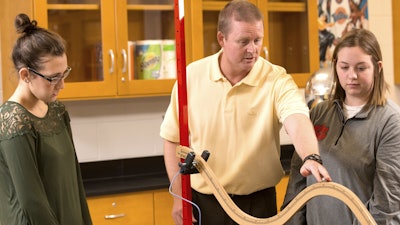Communication, teamwork, and problem-solving are key “success skills” employers seek in potential employees, according to a new report by the Southern Regional Education Board (SREB). But it is unclear whether credentialing certifies those skills.
 SREB recently released its "The Skills Employers Demand: An Analysis of the Research" report to aid educators and policymakers as they work to integrate soft, employability skills into secondary and postsecondary education.Southern Regional Education Board
SREB recently released its "The Skills Employers Demand: An Analysis of the Research" report to aid educators and policymakers as they work to integrate soft, employability skills into secondary and postsecondary education.Southern Regional Education Board
The report summarizes a decade of studies, between 2013 and 2023, and analyzes job postings in 16 SREB states. It found that the most sought-after skills across industries were consistent in academic and business studies: communication, oral, and written; teamwork and collaboration; and problem solving and critical thinking.
“At a time when we’re all learning how AI can do routine tasks, these are the qualities that set humans apart from machines,” said SREB President Dr. Stephen L. Pruitt.
Supervision and management also emerged as a top skill in health care and STEM industries, where SREB predicts the largest workforce gaps in Southern states.
“There is growing demand for these success skills, which are associated with higher earnings, adaptability, career progression, resilience and productivity,” said Courtney Leidner, SREB research analyst and author of the study.
The report noted that secondary and postsecondary educational institutions are being challenged to design programs that develop these skills for the future workforce. Some states have undertaken efforts to embed success skill development in educational experiences like work-based learning and course curriculum as well as through micro-credentialing and certificate programs.
However, the report explained there is little evidence of coordination between secondary and postsecondary institutions. It is unclear how businesses perceive the validity of the credentials. The report said credentialing is an important step to convey the employability of students, but credentials should be provided by a reputable institution and widely recognized by employers.





















